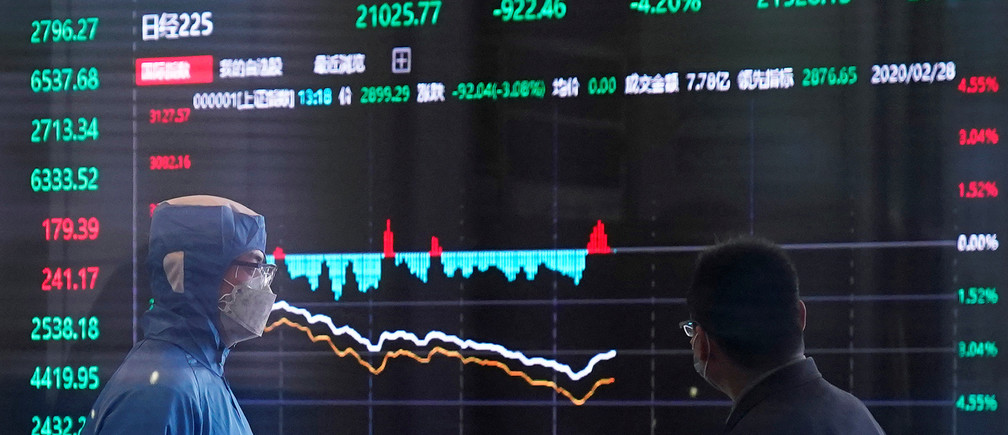Details
- Does global recovery from the pandemic necessarily imply a tradeoff between the effectiveness of health response and the effectiveness of economic response?
- What will recovery look like, in terms of stimulus plans and support to small or large businesses, and how will individual countries’ measures affect the global economy?
- Will governments’ stimulus programs and monetary policies result in inflation, and in turn, what effects could that have, such as on wealth inequality?
We are pleased to invite everyone to this fascinating online talk hosted by the prestigious Cheung Kong Graduate School of Business (CKGSB), organized in partnership with The Chosun Ilbo, on Wednesday, 20th May 2020, at 9:00 AM – 10:30 AM (Beijing Time).
This unique webinar will have guest speakers that are experts on global economy, including Robert Barro, Paul M. Warburg Professor of Economics at Harvard University; Dr. Xiang Bing, Founding Dean and Professor of China Business and Globalization at the Cheung Kong Graduate School of Business; and Dr. Jun Kwang-woo, Chairman of Institute for Global Economics, former Chairman at Financial Services Commission, and Chairman of Deloitte Korea.
Event Details
- Topic: The Way Out of Recession or Depression
- Host: Cheung Kong Graduate School of Business
- Partner Organisation: The Chosun Ilbo
- Date: Wednesday, 20th May 2020
- Time: 9:00 AM – 10:30 AM (Beijing Time) | 10:30 – 11:30 (Korea Standard Time)
- Language: English
- Platform: Zoom (Link will be sent through email before the event)
Register
Register here. We will confirm your registration by email, and send you the webinar login details.
About the Talk
Due to the COVID-19 pandemic, the world is facing multiple crises—a health crisis, a financial crisis, and a collapse in commodity prices, all of which connect in a myriad of ways. Governments worldwide are providing unprecedented support to households, businesses, and financial markets, however, due to the uncertain nature of the virus and its development, a great deal of ambiguity still remains as to what economic recovery looks like.
According to the International Monetary Fund, its April World Economic Outlook projects global growth in 2020 to fall to -3 percent, estimating the cumulative output loss over 2020 and 2021 from the pandemic to be around 9 trillion dollars. In particular, IMF predicts the US economy will shrink by almost 6% this year, compared with a contraction of about 7% in the Eurozone. Moreover, for the first time since the Great Depression, both advanced economies and emerging market and developing economies are in a recession.
- Does global recovery from the pandemic necessarily imply a tradeoff between the effectiveness of health response and the effectiveness of economic response?
- What will recovery look like, in terms of stimulus plans and support to small or large businesses, and how will individual countries’ measures affect the global economy?
- Will governments’ stimulus programs and monetary policies result in inflation, and in turn, what effects could that have, such as on wealth inequality?
- How vital is global trade to economic recovery? Will economies take a protectionist approach or will we see more regional trade agreements?
- What is the role of international bodies, like the IMF, World Bank, and the UN, in revitalizing the global economy?
- How shall economic recovery be measured? What are the risks of using GDP as the yardstick?
- How shall companies in different parts of the world get prepared for the new global economic realities?
To address these pertinent questions, this unique webinar will convene leading experts on the global economy, including:
- Robert Barro, Paul M. Warburg Professor of Economics at Harvard University, who is the fifth most influential economist in the world based on his academic contributions
- Xiang Bing, Founding Dean and Professor of China Business and Globalization at the Cheung Kong Graduate School of Business, who is a global authority on China’s development and its global implications
- Jun Kwang-woo, Chairman of Institute for Global Economics, former Chairman at Financial Services Commission, and Chairman of Deloitte Korea
The Agenda
- 09:00 – 09:05 Welcome Remarks by Chosun Ilbo Representative
- 09:05 – 09:10 Opening Remarks by Zhou Li, Assistant Dean of Cheung Kong Graduate School of Business (CKGSB)
- 09:10 – 09:20 Keynote Speech by Xiang Bing, Founding Dean and Professor of China Business and Globalization, Cheung Kong Graduate School of Business (CKGSB)
- 09:20 – 09:30 Keynote Speech by Robert Barro, Paul M. Warburg Professor of Economics at Harvard University
- 09:30 – 10:10 Dialogue between Xiang Bing and Robert Barro; Moderated by Jun Kwang-woo, Chairman of Institute for Global Economics, former Chairman at Financial Services Commission, and Chairman of Deloitte Korea
- 10:10 – 10:25 Questions from Participants
- 10:25 – 10:30 Concluding Remarks by Chosun Ilbo Representative
About the Speakers
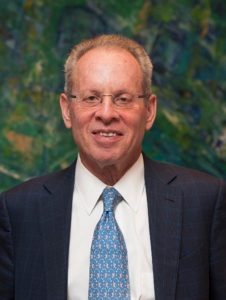
Robert Barro
Paul M. Warburg Professor of Economics
Robert J. Barro is Paul M. Warburg Professor of Economics at Harvard University, a visiting scholar at the American Enterprise Institute, and a research associate of the National Bureau of Economic Research. He has a Ph.D. in economics from Harvard University and a B.S. in physics from Caltech.
Barro is co-editor of Harvard’s Quarterly Journal of Economics and has been President of the Western Economic Association and Vice President of the American Economic Association.
He was a viewpoint columnist for Business Week from 1998 to 2006 and a contributing editor of The Wall Street Journal from 1991 to 1998. He has written extensively on macroeconomics and economic growth.
Recent research involves rare macroeconomic disasters, corporate tax reform, religion & economy, empirical determinants of economic growth, and economic effects of public debt and budget deficits. Recent books include Religion and Economy (forthcoming with Rachel McCleary), Economic Growth (2nd edition, with Xavier Sala-i-Martin), Nothing Is Sacred: Economic Ideas for the New Millennium, Determinants of Economic Growth, and Getting It Right: Markets and Choices in a Free Society.
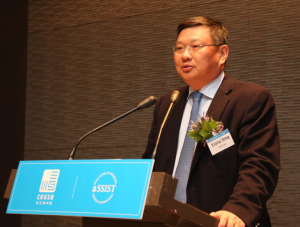
Xiang Bing
Founding Dean
Professor of China Business and Globalization
Cheung Kong Graduate School of Business
Dr. Xiang Bing is the Founding Dean and Professor of China Business and Globalization at Cheung Kong Graduate School of Business (CKGSB). Prior to joining CKGSB, Dr. Xiang was a Professor at Peking University and one of the seven founding faculty members of China Europe International Business School.
He served as an independent board member of a number of companies (including two Fortune Global 500) listed in Hong Kong, Mainland China, and the United States. He is a member of International Advisory Council of Fundação Dom Cabral (FDC) in Brazil. He also served as a member of the Board of Trustees for United Way Worldwide (US), the largest private charitable organization in the world.
Dr. Xiang has served as a keynote speaker at many influential forums and conferences around the world. His recent keynote speaking engagements include APEC Global Innovator Conference (2015), Sydney China Forum (2016), US Committee of 100 Annual Conference (2016, Los Angeles), China-Europe Trade and Investment Forum (2017, Brussels), FT Banking Summit (2017, London), and Harvard China Forum (2017, 2018 and 2019).
He participated in prominent closed-door conferences including Ditchley Foundation Annual Forum (2014), Yale CEO Summit (2016), and Rome Roundtable (2017 2018 and 2019). He also spoke at Council on Foreign Relations (2019, New York City), Foreign Policy Association (2018, New York City) and Center for Strategic and International Studies (2018). In 2018, he served as the first Co-Chairman of Ditchley Foundation Annual Forum.
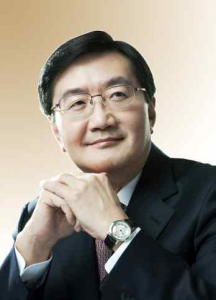
Jun Kwang-woo
Chairman of the Institute for Global Economics
Former Chairman at Financial Services Commission
Chairman of Deloitte Korea
Dr. Jun served in 2009-2013 as Chairman and Chief Executive Officer of the National Pension Service (NPS) of Korea, the 7,000 members public organization with US$600 billion funds, one of the world’s largest in terms of total assets under management, and led the NPS to become a global force during his tenure. After serving as Distinguished Professor at Yonsei University’s Graduate School of Economics, he is currently Chairman, Institute for Global Economics(IGE).
In 2008-2009, Dr. Jun served as founding Chairman of the Financial Services Commission(FSC), the cabinet post in charge of financial policy and supervision, and played a leading role in successfully coping with the global financial crisis erupted in 2008. He was also elected Chairman of the Asia-Pacific Regional Committee of the International Organization of Securities Commissions (IOSCO), the first time for a Korean top regulator.
His previous positions include Korea’s Ambassador for International Finance; Chairman of the Board of POSCO, a global steel group; Chairman of Deloitte Korea; Group Vice Chairman of Woori Financial Holdings; President of the Korea Center for International Finance. After serving as a finance professor at Michigan State University, he worked for the World Bank for more than 14 years in various capacities. At the height of the Asian financial crisis in 1998, he returned home as Special Advisor to Deputy Prime Minister.
Dr. Jun is an author of numerous articles and several books, including Beyond the Crisis(2010). He has been featured in interviews or columns appearing in The Financial Times, The Wall Street Journal, The Economist, among others, and has been a frequently invited speaker at international conferences such as Davos Forum.
He received his BA in economics from Seoul National University and MA in economics and MBA and Ph.D. in finance from Indiana University. He has completed the Executive Program at Harvard Business School and the AMP from the Wharton School, the University of Pennsylvania. Among the recent honors and awards received, he is the inaugural recipient of Indiana University’s Distinguished International Alumni Award (2013).
About The Chosun Ilbo

The Chosun Ilbo first hit newsstands in 1920, and now celebrates 100th years in 2020. Based on its strong expertise in news reporting, they have evolved into one of Korea’s largest media groups, Chosun Media, encompassing a wide range of subsidiaries from broadcast and new media to publishing.
About Cheung Kong Graduate School of Business (CKGSB)
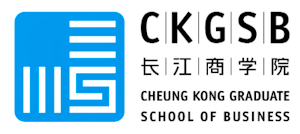
Cheung Kong Graduate School of Business (CKGSB) is China’s first independent, faculty-governed and non-profit business school. Founded in 2002 with support from the Li Ka Shing Foundation, CKGSB’s mission is to cultivate business leaders with a global vision, a humanistic spirit, a strong sense of social responsibility and an innovative mindset.
CKGSB has a campus in Beijing, teaching sites in Shanghai and Shenzhen, and representative offices in Hong Kong, London, and New York. The school offers innovative MBA, Finance MBA, Executive MBA, Business Scholars Program (DBA) and Executive Education programs.
You can learn more about CKGSB here.
About CKGSB MBA
This accelerated English language 14-month MBA program helps young professionals transform into global business leaders with a strong understanding of China and other emerging economies.
Participants will tap into unique mentoring opportunities that will connect them to the Who’s Who of business in China as they learn from some of the best academics in one of the most dynamic markets in the world.
The CKGSB MBA Program is known as “The Entrepreneur’s MBA“, and gives students access to a wide community of highly successful founders in China. You can learn more about the CKGSB Chuang (Founders) community here.
Registration Form
Please fill out the form to complete your registration.
